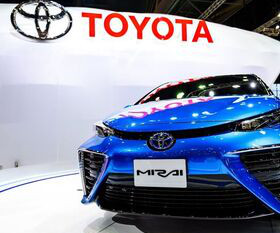Tsinghua University provincial-level lifecycle study finds fuel-cycle criteria pollutants of EVs in China could be up to 5x those of natural gas vehicles due to China’s coal-dominant power mix
Green Car Congress
JANUARY 12, 2013
In regions where the share of coal-based electricity is relatively low, EVs can achieve substantial GHG reduction, the team reports in a paper in the ACS journal Environmental Science & Technology. According to the 12 th Five-Year Plan of the China Coal Industry (2011?2015)





























Let's personalize your content